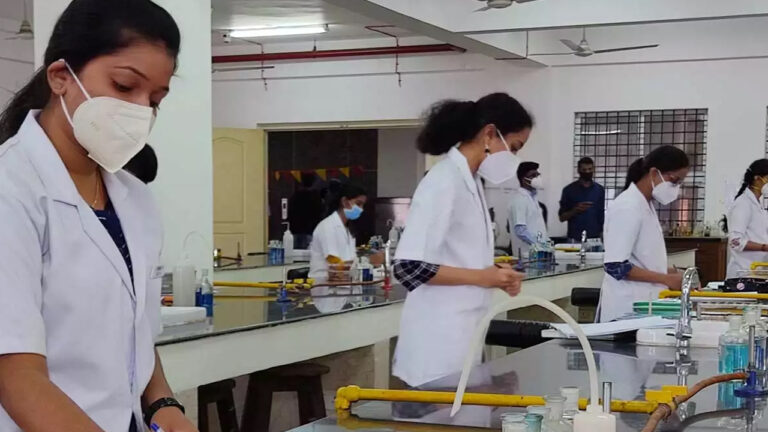Why FMGE Passing Rate Is Low?

Due to the poor FMGE passing rate, many Indians believe that an MBBS obtained abroad is of no significance. They believe that the poor quality of education offered abroad is the reason why so many pupils struggle on this exam.
You might also believe that, Is it real, though?
Tell me how other students passed the FMGE exam and many of them are now working in Indian hospitals and many more if the quality of education is so poor abroad before I reveal the true explanation.
The poor FMGE passing rate is solely a result of the students themselves, not the university or the calibre of education.
Let me fully explain it, and then I’ll talk about some significant myths concerning the MCI / NMC exam. So let’s begin.
There are two sorts of students who travel abroad to get an MBBS degree.
- Those are serious about their studies and achieving their goal of becoming doctors
- Those who simply want to have fun while earning a medical degree
Since the majority of students fall into the first category, why aren’t these students able to pass the FMGE exam?
All of these students are extremely motivated throughout the first several weeks and routinely attend class. I recall that practically every student came to the common area to study at the beginning of my course.
By the end of the semester, there are only a few students remaining who really attend the classes, as the number of students has steadily dwindled throughout the course of the semester. After a while, they also begin studying exclusively in their rooms because the common area/library has been converted into a chatting area for pals.
Students have a lot of independence while they study abroad. They don’t need to ask their parents for permission to do anything. There are no limitations or parental dread.
60% of students discontinue or do very little studying by the end of the first year. Some of them simply continue to hang out with their buddies, and others will do anything but study.
They just study for tests, which they barely pass (because of ESCT)
Of the 40% of students still enrolled, 50% drop out after their first year. That implies that they solely study topics in which they excel. Just one or two subjects.
The remaining few students continue their study habits regardless of the circumstances, which allows them to easily pass the FMGE on their first try.
Every university offers study materials, and it’s not a place where lecturers will spend all of their time explaining things to you. Even in medical institutes in India, it never occurs.
Your questions will be answered, and the professor will teach you the key concepts. The remainder is up to you on your own.
Now, whether you study or not is entirely up to you. That’s all there is to it.
Some people utilise the MCI / NMC passing rate as a means to further their personal objectives.
For instance, private medical institutes in India utilise it to demonstrate that education abroad is of poor quality. In order for students who do not receive government aid to enrol in private institutions and pay exorbitant tuition rather than a medical university abroad that offers affordable admission.
Well, education isn’t the issue.
Some MBBS overseas consultants also utilise it to advertise a specific college or nation. They will claim that because it has a greater passing rate, this university or this nation is excellent.
What can a university do if a student doesn’t study themselves, though?
Finally, the question of how to study for the MCI / NMC exam may cross your mind.
You don’t have to, is the straightforward response to this. Simply concentrate on your academic work, maintain a high grade point average on semester exams, and occasionally review earlier subjects.
If you don’t study for an exam or study very little and still manage to pass it by whatever means, such as cheating, it will start to become a habit moving forward.
Do your best on all tests and don’t take them lightly.
Some of the students in classes do well on every exam, and we have no doubts that they would pass the MCI / NMC exam on their first try.
These do enjoy themselves and have fun; we’re not saying they don’t, but only to a certain extent.
Additionally, there are consultants that claim to offer MCI / NMC coaching or to have passed it and be able to assist you in doing so, but all they really do is send teachers your way for a few months and call it MCI / NMC coaching. They do this in order to produce YouTube videos that will entice more pupils to enrol with them.
Additionally, several consultancies assert that the passing rates of their students (who enrol through them) are between 70 and 90 percentage. These claims lack adequate support.
Some even claim that a university’s passing rate for the year 2019 is this many (random number), however the official MCI / NMC passing rate for the year 2019 has not yet been disclosed.
Additionally, it doesn’t release every year. The MCI / NMC have provided three years’ worth of data in a row.
The most recent official data for the years 2015–2018 combined was made available.
All of these are only deceptive methods of getting you to admit guilt.
A competent consultant is one who advises you on the MCI / NMC exam rather than just making exaggerated claims regarding MCI / NMC coaching.
Conclusion
Because most students stop studying consistently after migrating abroad, the MCI / NMC passing percentage is low. They merely rely on MCI / NMC coaching, as advertised by some consultants.
However, you must eventually study alone. If you do this, you should have no trouble passing the MCI / NMC exam on your first try.
You just need to concentrate on the university curriculum, and if you do so, you will be able to pass any exam—MCI / NMC or otherwise—with ease.
Don’t pick a university or a nation based on the MCI / NMC passing rate, either. While selecting a university for an MBBS programme overseas, there are many additional crucial variables to take into account.
Is NExT exam 2023 confirmed?
The National Exit Examination, as confirmed by NMC, will be administered in 2023 in accordance with the roadmap to provide students enough time to prepare for this novel exam, and the mock test will serve as a trial run for those who want to understand the NExT better.
NExT Exam Pattern
There will be multiple-choice questions regarding theory (MCQs). After the final year of medical school but before the internship, NExT-1 will be held. After the internship, your NExT-1 score will help you secure a PG seat. NExT-1 will therefore serve as both a competitive exam and a qualifying exam.
Is next exam twice a year?
The following test will be an online computer-based exam. This takes place throughout the months of June/July and November/December twice a year. The National Exit Test, which will be held as a national test, will be used as the foundation for admission into the postgraduate programmes, according the revisions made to the new NMC Bill.
Purpose of introducing NEXT Exam 2022
The main goal of this exam is to improve India’s medical workforce so that the country’s healthcare system is stronger. This test will level the playing field for all applicants for medical licences in India and raise the country’s educational standards.
Is next exam compulsory for Indian students?
NEXT test is mandatory for MBBS graduates. The National Medical Commission Bill 2019 was approved by the Lok Sabha in August 2019. It mandates that MBBS graduates in India have to take the National Exit Test, a national-level exit exam.
Is next exam officially announced?
Yes! The FMGE Exam, which served as India’s official licence examination, will be officially replaced by the NEXT exam.






